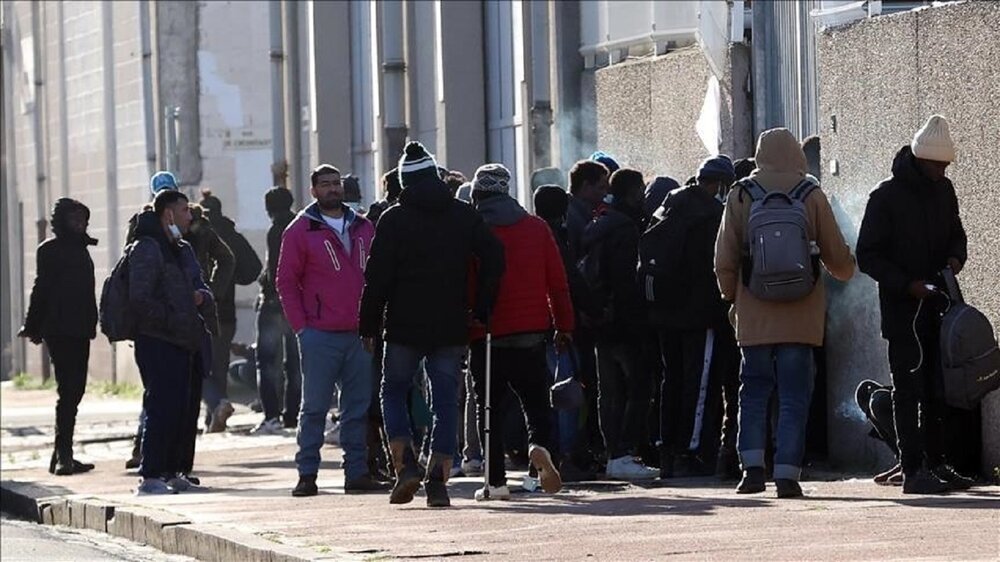Hawzah News Agency – The UK is receiving harsh criticisms over establishing its own "Guantanamo Bay" after signing a major deal with Rwanda to end human smuggling across the English Channel.
Earlier this week, senior Tories including former ministers David Davis, Andrew Mitchell and Simon Hoare protested against the deal by comparing it to creating "a British Guantanamo Bay."
The UK, which is a party in the UN's Refugee Convention and the European Convention on Human Rights, is being criticized for "adopting arrangements that abdicate responsibility to others and thus threaten the international refugee protection regime, which has stood the test of time and saved millions of lives over the decades."
Who will be sent to Rwanda?
With the UK-Rwanda Migration Partnership signed on Thursday, the vast majority of asylum seekers who arrive in the UK either via boat or hiding in trucks will be sent to Rwanda to be resettled.
As part of the deal, it is being told that the majority of migrants to be sent to an overseas country would include single men.
The "world's first-ever" partnership with Rwanda will provide support to those sent from the UK in the shape of education, accommodation and health services, for up to five years.
Under the deal, the UK has pledged £120M ($156.8M) investment in Rwanda's economic development and growth, as well as financial support for asylum procedures, accommodation and integration.
Those whose applications are not accepted will still be able to receive migrant status or be sent to their own country or to another country where they have the right of residence.
Why did UK choose Rwanda?
The UK's plans to send asylum seekers to third countries until their applications are approved was widely discussed during the previous year, with British colonies Isle of Man and Gibraltar announcing they will not accept any asylum seekers.
Also the government's plans to send refugees to Ascension Island, another British colony, were leaked to the press last year. There were also reports on UK trying to make a similar deal with Ghana and Albania, but failing.
After inking the deal with Rwanda, British Prime Minister Boris Johnson argued that the East African country is "safe," and is recognized worldwide for its record of welcoming and integrating migrants.
However, human rights organizations and non-governmental organizations argued that Rwanda's human rights record is not clean, and that deporting people to centers in the country is "dangerous, cruel and inhuman."
UK, Rwanda deal reminds of refugee approach of Israel and Australia
Israel signed a similar agreement with Rwanda and Uganda in 2014-2017. However, almost all of the 4,000 African asylum seekers who came to Rwanda via the agreement tried to leave the country for Europe through human smugglers.
Since 2013, Australia has been sending refugees trying to enter the country by boat to detention centers established in Nauru and Papua New Guinea's Manus Island. These centers are known by reports of incidents such as harassment, suicide cases, sexual assault and mental health problems.
Rwandan opposition reacts to migration deal with England
Democratic Green Party of Rwanda's leader Frank Habineza stated that they will support refugees who want to come to their country directly, but criticized rich countries, including the UK, for imposing their obligations on asylum seekers on other countries.
Saying that the deal is not sustainable, Habineza called on the UK to fulfill its international obligations.
Reactions to deal
The UK's new migration plan received criticisms from not only the opposition but also non-governmental organizations.
Describing the move as the "height of irresponsibility," Steve Valdez-Symonds, Amnesty International's refugees and migrant rights program director for the UK, said this "shows how far removed from humanity and reality the Government now is on asylum issues."
Labour Party leader Keir Starmer said the announcement by Prime Minister Johnson was a desperate attempt to distract the country from his law-breaking.
He described the plan as “unworkable” and “extortionate” for taxpayers.
Jeremy Corbyn, Labour’s former head, also criticized the government’s plan, calling the new policy “shameful and beyond cruel.”


Your Comment